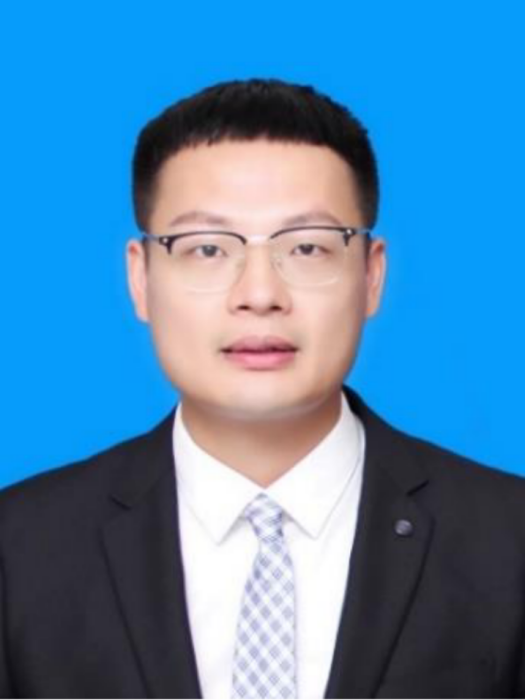譚大禹,安徽大學物質科學與信息技術研究院講師,碩士生導師。博士畢業於華東理工大學能源化工過程智慧型製造教育部重點實驗室,師從國家傑出青年鐘偉民教授、錢鋒院士團隊,獲控制科學與工程專業工學博士學位。現任職於安徽大學物科院智慧型所(計算智慧型與信號處理教育部重點實驗室)。
基本介紹
- 中文名:譚大禹
- 職稱:講師
人物經歷,研究方向,主要成就,獲獎記錄,社會任職,代表性學術論文,
人物經歷
譚大禹,安徽大學物質科學與信息技術研究院講師,碩士生導師。博士畢業於華東理工大學能源化工過程智慧型製造教育部重點實驗室,師從國家傑出青年鐘偉民教授、錢鋒院士團隊,獲控制科學與工程專業工學博士學位。
研究方向
近年來一直從事深度神經網路最佳化及其套用,在醫學圖像分割和單細胞測序、藥物分子與基因過程建模、數據-機理建模和機器視覺等方面開展了深入研究工作;同時在工業過程系統最佳化控制、煉化一體化智慧型製造的基礎理論、工業圖像分割等方面進行了大量研究工作。
主要成就
主持國家自然科學基金青年項目1項,主持安徽省自然科學基金青年項目1項;主持安徽省高校自然科學研究重點項目1項;主持國家留學基金委公派研究生項目1項(博士期間獲得 CSC 資助在加拿大麥克馬斯特大學聯合培養);主持能源化工過程智慧型製造教育部重點實驗室開放課題1項和安徽大學引進人才科研啟動資助項目1項;作為項目主要參與人參與國家自然科學基金重大項目、面上項目以及國家重點研發計畫各1項。迄今為止,已在《IEEE Transactions on Cybernetics》、《IEEE Transactions on Neural Networks and LearningSystems》、《IEEE Transactions on Industrial Informatics》、《IEEE Transactions on Emerging Topics in Computational Intelligence》、《IEEE Transactions on Cognitive and Developmental Systems》、《IEEE Journal of Biomedical and Health Informatics》和《Briefings in Bioinformatics》等國內外高水平期刊上發表論文34篇,其中SCI/EI論文共收錄23/4篇,以第一作者及通訊作者在相關領域發表Top期刊論文12篇。研究成果申請公開及授權發明專利共8項,軟體著作權3項。
獲獎記錄
曾獲華東理工大學研究生學術論壇優秀論文、2023年中國化工學會優秀論文獎等多項榮譽,指導研究生研究性學習和創新性實驗計畫國家級項目多項並獲獎4項,並榮獲第二十屆中國研究生數學建模競賽“二等獎”。
社會任職
現任職於安徽大學物科院智慧型所(計算智慧型與信號處理教育部重點實驗室)。中國自動化學會會員、中國計算機學會會員、中國化工學會會員、CCF生物信息學(BIO-3New)青年學者討論會執委會委員;並擔任IEEE Transactions on Neural Networks and Learning Systems、IEEE Transactions on Industrial Informatics、IEEE Transactions on Cybernetics、IEEE Transactions on Instrumentation and Measurement、Briefings in Bioinformatics、IEEE Open Journal of the Industrial Electronics Society、Neurocomputing和《自動化學報》等多個國際期刊擔任審稿人。
代表性學術論文
1.D. Tan, Y. Su, X. Peng, H. Cheng, C-H. Zheng, X. Zhang, W. Zhong, Large-Scale Data-Driven Optimization in Deep Modeling with An Intelligent Decision-Making Mechanism, IEEE Transactions on Cybernetics, DOI: 10.1109/TCYB.2023.3278110, 2023.
2.D. Tan, Z. Huang, X. Peng, W. Zhong*, and V. Mahalec*. Deep adaptive fuzzy clustering for evolutionary unsupervised representation learning, IEEE Transactionson Neural Networks and Learning Systems, 2023, DOI: 10.1109/TNNLS.2023.3243666.
3. D. Tan, L. Chen, C. Jiang, W. Zhong*, W. Du, F. Qian, and V. Mahalec*. A circular target feature detection framework based on DCNN for industrial applications, IEEE Transactions on Industrial Informatics, 17(5): 3303-3313, 2021.
4.D. Tan, Z. Yao, X. Peng, H.Ma, Y. Dai*, Y. Su*, and W. Zhong. Multi-Level Medical Image Segmentation Network Based on Multi-Scale and Context Information Fusion Strategy, IEEE Transactions on Emerging Topics in Computational Intelligence, DOI: 10.1109/TETCI.2023.3306250, 2023.
5. D. Tan, W. Zhong*, X. Peng, Q. Wang, and V. Mahalec*. Accurate and fast deep evolutionary networks structured representation through activating and freezing dense networks, IEEETransactions on Cognitive and Developmental Systems,14(1): 102-115, 2022.
6. D. Tan, W. Zhong*, C. Jiang, X. Peng, and W. He. High-order fuzzy clusteringalgorithms based on multikernel mean shift, Neurocomputing, 385, 63-79, 2020.
7.D. Tan, W. Zhong*, X. Peng, Q. Wang, and V. Mahalec*. Automatic determining optimal parameters in multi-kernel collaborative fuzzy clustering based on dimension constraint, Neurocomputing, 443, 58-74, 2021.
8. D. Tan, H. Jiang, H. Li, Y. Xie, Y. Su. Predictionof drug-protein interaction based on dual channel neural networks with attention mechanism, Briefings in Functional Genomics,DOI: 10.1093/bfgp/elad037, 2023.
9.D.Tan, Y. Yang, M. Wang, P. Wang, L. Zhang, T-O. Ishdorj, and Y. Su*,Extraction of relationship between esophageal cancer and biomolecules based on BioBERT, Proc. 2023 International Conference on Intelligent Computing(ICIC), 2023, Accepted. (CCF C類)
10. Y. Su, R. Lin, J. Wang, D. Tan*, C-H. Zheng*. Denoising adaptive deep clustering with self-attention mechanism on single-cell sequencing data, Briefings in Bioinformatics, 2023, DOI: 10.1093/bib/bbad021.
11. W.Zhong*, D. Tan, X. Peng, Y. Tang, and W. He. Fuzzy high-order hybrid clustering algorithm based on swarm intelligence sets, Neurocomputing, 314, 347-359, 2018.
12. C. Jiang, W. Zhong*, Y. Lu, B. Huang*, W. Song, D. Tan, F. Qian. Deep Bayesian Slow Feature Extraction with Application to Industrial Inferential Modeling, IEEE Transactions on Industrial Informatics, 19(1): 40-51, 2023.
13. Z.Zhang, Y. Zhang, D. Yue*, C-X. Dou, L. Ding, and D. Tan. Voltage regulation with high penetration of low-carbon energy in distribution networks: a source-grid-load-collaboration-based perspective, IEEE Transactions on Industrial Informatics,18(6), 3987-3999, 2022.
14. J. Wang, J. Xia, D. Tan, R. Lin, Y. Su, and C-H. Zheng*. scHFC:ahybridfuzzyclusteringmethodforsingle-cellRNA-seqdataoptimizedbynaturalcomputation, BriefingsinBioinformatics,23(2): 1-13, 2022.
15.Q. Wang, L. Zino, D. Tan, J. Xu, and W. Zhong*. Fully distributed quantized secure bipartite consensus control of nonlinear multiagent systems subject to denial-of-service attacks, Neurocomputing, 505: 101-115, 2022.
16.Q. Wang, W. He*, L. Zino, D. Tan, and W. Zhong*. Bipartite consensus for a class of nonlinear multi-agent systems under switching topologies: a disturbance observer-based approach, Neurocomputing, 488: 3130-3143, 2022.

